Indigenous communities threatened by Barro Blanco dam in Panama
The Barro Blanco dam project in Panama, which has Dutch financial support, is causing indigenous lands to disappear under water. Both ENDS is working to protect the rights of indigenous communities living near the dam.
Since 2011, a large dam has been under construction in the Tabasará river in Panama. The Dutch development bank FMO is one of the financiers of the project, which is being implemented for the Panamanian government. Together with the German development bank DEG and the Central American Bank for Economic Integration (CABEI), FMO is investing 77 million US dollars in the project. The dam is being built by the Panamanian company GENISA.
No consultation with local communities
Around the basin of the river live Ngäbe families, who are part of the Ngäbe-Buglé, an indigenous tribe of around 200,000 people. They are resisting the building of the dam because the lake it will create will inundate their houses, religious and historical sites, and part of their fields and food forests.
Local environmental and human rights movement M-10, whose members mainly live in the area affected by the dam, says that local Ngäbe communities have not been involved at all in the decision-making on the Barro Blanco dam. For a project of this nature, however, the free, prior and informed consent (FPIC) of the indigenous population is required. This right is laid down in the UN Declaration on the Rights of Indigenous Peoples, with which FMO also has to comply.
In recent years, the Ngäbe have conducted peaceful protests against the building of the Barro Blanco. In 2012, the army intervened, leaving two dead and 40 wounded, and more than 100 protesters were arrested. At later demonstrations, too, the atmosphere was tense.
Difficult dialogue with the Panamanian government
In the case of Barro Blanco, the Panamanian government displays it most unreliable side. It is trying to reach agreement with the indigenous Ngäbe-Buglé Congress, the tribe's legal representative body. The government is negotiating with the executive board of the Congress. The Congress has, however, disbanded the board, and there is little chance that it will, therefore, accept any agreement between the government and the board.
In the meantime, the building of the dam continues, despite a decision by the Panamanian environmental authorities calling for work to be suspended. In 2016 and 2017, again despite earlier promises by the government, the dam's sluice gates were closed, officially to test them. Test or not, the damage has already been done to the land and homes of the Ngäbe. And worse still, on both occasions those immediately affected were not warned and were given no information about what would happen to their land. The dam now seems to be in full operation.
As a final legal resort, the communities have taken their complaints to the Inter-American Court of Human Rights (IACHR). With support from Both ENDS, representatives of M10 and partner organisation ACD travelled to Washington for a hearing and submitted an official petition to the IACHR. The Court ordered the Panamanian government to consult more closely with the local communities.
FMO fails to comply with its own policy
Both ENDS has been following the project since the current financiers were considering investing in it, because we saw that the correct procedures had not always been followed in the decision-making process. With such a large-scale intervention, FMO must assure itself that local inhabitants have consented to the project on the basis of free and prior information. The events described above show clearly that this did not happen in the case of the Barro Blanco project.
Both ENDS and M-10 have therefore been involved in dialogue with FMO for many years about the project. As long ago as 2011, we submitted objections to Barro Blanco, but FMO dismissed them, claiming that all the requirements had been met. In 2014, M-10 submitted a complaint to the newly set-up complaints mechanism of the FMO and DEG. The subsequent report stated that the banks had not taken sufficient account of the rights of the local population and the impact on the environment, and that FMO had acted in violation of its own guidelines.
As a result of the tests and of the reservoir ultimately filling up, people have been forced to leave their homes and land. This has taken place without them being informed or compensated, and without them giving their consent. That is not only against FMO's own policy, but in violation of international human rights.
Both ENDS continues to support the local people
What now? The dam has almost been completed and the land of the Ngäbe is under water. FMO is hiding behind the dialogue between the Panamanian government and the dismissed indigenous Congress board.
Both ENDS continues to fight to stop the violations of the rights of the Ngäbe people in Panama. We continue to support our partners in their legal actions against the national government, at every level up to the IACHR.
In addition, FMO must show that it does not accept the violation of human rights by its client GENISA and demand that they suspend the project until the local communities have been correctly consulted and compensated.
For more information
Read more about this subject
-
Dossier
Agua Zarca: indigenous fight against dam costs lives
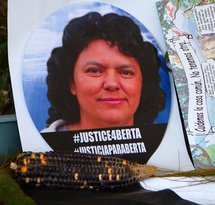
Indigenous Hondurans are resisting the construction of the Agua Zarca hydrodam. Their fight has cost several lives, including that of Berta Cáceres. After considerable public pressure, Dutch development bank FMO withdrew from the project.
-
Dossier
Advocating for responsible policies of development banks
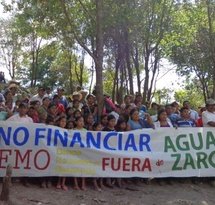
Development banks should comply with strict environmental and human rights rules to ensure that their projects benefit and do not harm the poorest groups. Both ENDS monitors the banks to make sure they do.
-
Dossier
Large-scale infrastructure
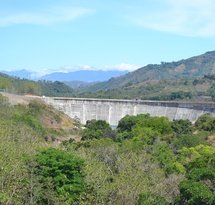
Large-scale infrastructural projects have detrimental effects on local people and the environment, while their benefits are felt elsewhere. Both ENDS is working to ensure that local people have a greater say in decision-making and is investigating the way these projects are funded.
-
Press release / 5 October 2022
Independent research confirms FMO’s responsibility for destruction caused by Barro Blanco dam, recommends compensation
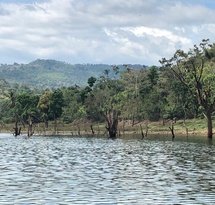
Utrecht, 5 October 2022 - Dutch development bank FMO bears responsibility for the destruction of livelihoods, economic losses and environmental damage caused by the construction of the Barro Blanco dam in Panama, according to a report by the bank's Independent Complaints Mechanism (ICM). Indigenous communities affected by the dam are pleased that their complaints have been confirmed and reiterate their call for apologies and compensation.
-
News / 23 December 2021
2022 is the year for FMO to make good on its promises and provide financial support only to sustainable development
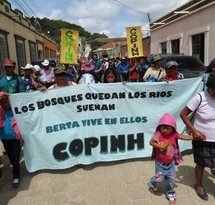
2021 was a turbulent year for Dutch development bank FMO, to say the least. The bank has been under fire for many years for investments linked to human rights violations and suspected corruption. But in the past year, the Dutch press and media have reported on one new development after the other in ongoing cases involving FMO. Below we give a short summary of these cases and call on FMO to make the promised improvements in 2022.
-
News / 8 November 2021
Both ENDS and SOMO condemn violence against Indigenous community near the Barro Blanco dam in Panama
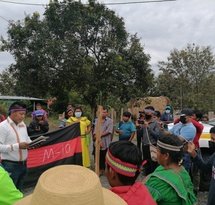
Members of the Indigenous Ngäbe Buglé people were brutally attacked by Panamanian police on Friday 29 October 2021 from a parcel of private land near the FMO-financed Barro Blanco hydroelectric dam. The victims, all members of the anti-dam movement M22, had peacefully occupied the land after their protest camp got dismantled in July this year.
-
News / 27 July 2021
In conversation with the Ngäbe-Bugle community in Panama, after five years of Barro Blanco-dam
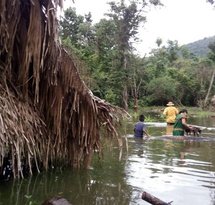
In April 2021, the Dutch development bank FMO announced that it is no longer involved in the Barro Blanco project, a controversial dam in Panama. GENISA, the Panamanian company that built the dam, unexpectedly paid off the multi-million dollar loan early. The question is to what extent, now that the bank is no longer actively financing the project, FMO can still be held responsible for the damage and suffering that was caused when this was still the case.
-
News / 6 April 2017
Barro Blanco floodings: enormous damage
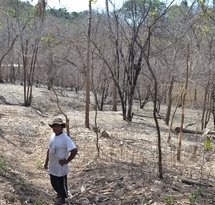
The closing of the Barro Blanco dam last year caused not only material but also cultural damage in the affected Ngäbe-Buglé communities in Panama. So far, funder FMO is not taking responsibility for the human rights abuses caused by the project. So, what now?
-
News / 30 August 2016
Worrying new developments around Barro Blanco
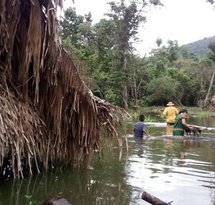
Three days after the first homes were flooded as a consequence of the Barro Blanco dam, the government of Panama signed an agreement about this dam with a number of representatives of the Ngäbe-Bugle people. The affected communities however have still not been involved in the process. Both ENDS is worried about these developments.
-
News / 1 June 2016
Indigenous land submerged by illegal closure of dam
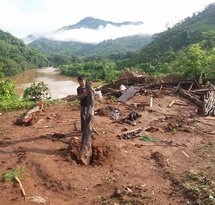
On Tuesday 24th of May the locks of the Barro Blanco dam in the Tabasará river in Panama, which is partly financed by the Dutch development bank FMO, were closed. This is in complete discord with the previous agreements between the Panamanian government and the leadership of the indigenous communities. Last august these parties had agreed that the reservoir of the dam would not be filled until a new agreement had been reached which includes all affected parties. According to the Panamanian government and the company Genisa the present filling of the dam is only a test. But this ‘test’ means that the water will rise 26 meters above the predicted future level of water.
-
News / 1 June 2015
FMO did not follow its own rules in financing Barro Blanco dam
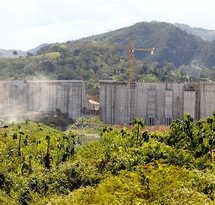
Dutch development bank FMO did not sufficiently take into account the rights of the local population and effects on the environment before approving a $ 25 million loan for the construction of the Barro Blanco dam in Panama. This is not in accordance with FMO’s own standards. This was revealed in the long-awaited report by the independent complaints mechanism (ICM) of the FMO and the German development bank DEG, released on May 29. The report was published in response to a complaint filed by the M-10, the movement representing the affected indigenous Ngöbe population, in May 2014. Both ENDS has been supporting the M-10 in its struggle against the dam for years, and was one of the organisations that supported the complaint.
-
News / 18 May 2015
Dutch FMO pushed Panama to continue construction Barro Blanco dam
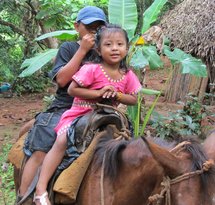
The Dutch Entrepreneurial Development Bank (FMO) has put pressure on the Panamanian government to proceed with the construction of the Barro Blanco dam. This was reported by the Dutch Newspaper ‘de Volkskrant’ on Monday the 18th of May. Construction works were suspended last February after the Panamanian environmental authority had found out that the company carrying out the construction – the Panamanian company Genisa – had violated environmental regulations and had failed to make proper arrangements with local Ngöbe communities. FMO is one of the investors in the project.
-
News / 6 May 2015
Construction of Barro Blanco dam will be resumed
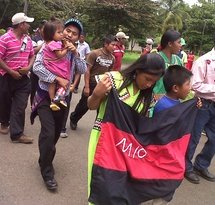
Although the Panamanian government decided to suspend the construction of the Barro Blanco dam in February of this year, it now appears that construction will be resumed after all. This has been announced by the government on Monday May 4th. The contract with the original developer, Genisa, will most probably be terminated, and other project developers will be sought. However, according to representatives of the indigenous Ngöbe Buglé community, new developers will not solve the problem: the dam will inevitably damage their territory and surroundings. Out of protest, they left the roundtable dialogue with the Panamanian government which started in February with the aim to find a solution to the problem of the controversial dam.
-
News / 10 February 2015
Press release Both ENDS and SOMO: construction of Barro Blanco dam finally suspended
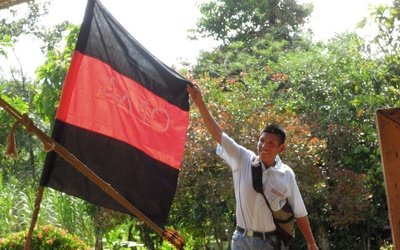
Following years of community protest the construction of the Barro Blanco dam in Panama is finally suspended. This was publicly announced by Panama’s Environmental Agency ANAM yesterday. The suspension of the project has been a request of the Ngöbe community, represented by the Movimiento 10 de Abril (M-10), for years. The dam is projected to flood homes, schools, and religious, archaeological, and cultural sites in the indigenous traditional territory, and convert the Tabasará River from a running river to a stagnant lake ecosystem. The suspension of the project is just in time, as the dam’s construction is near to completion,
-
News / 16 June 2014
FMO investigates complaint about Barro Blanco dam, Panama
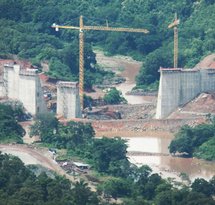
For the very first time, the expert panel of the independent complaints mechanism of the Dutch development bank FMO will handle a complaint. It was filed on May 5 by residents of the area where the Barro Blanco dam is currently being built. These people form part of the indigenous Ngäbe-Buglé tribe. They feel that FMO has not adhered to its own social and environmental standards when they lent 25 million US dollars to build the dam. Anouk Franck of Both ENDS has been keeping a close eye on the situation.
-
News / 7 May 2014
Indigenous people file complaint against FMO for funding of Barro Blanco Dam, Panama
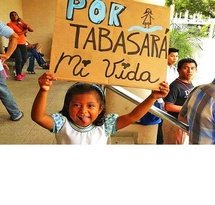
Residents belonging to the indigenous Ngäbe-Bugle people living on the traditional indigenous territory surrounding the Barro Blanco dam in Panama, have filed a complaint against the Dutch development bank FMO. The bank has invested $ 25 million in the dam that is currently under construction in the river Tabasará. The Ngäbe-Bugle blame FMO for not adequately following its own social and environmental standards. FMO also violates international agreements relating to indigenous peoples. For Both ENDS, Anouk Franck is closely following FMO’s activities.
-
News / 8 April 2014
Minister Ploumen regrets situation Barro Blanco
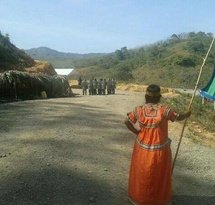
The Dutch Minister of Foreign Trade and Development regrets the fact that part of the Ngäbe-Buglé tribe is unhappy with the construction of the Barro Blanco dam in the river Tabasara in Panama. Ploumen said this in reply to parliamentary questions filed by Jasper van Dijk (SP). The Netherlands is involved in the construction of this controversial dam because of the loan provided by the Dutch development bank FMO. The minister does not have the intention of forcing the FMO to withdraw the loan, even though the basic human right of "free, prior and informed consent’ has been violated. A part of the Ngäbe tribe has not been informed before the plans were carried out. Anouk Franck of Both ENDS looks at the impact of the FMO loans.
-
News / 28 February 2014
Parliamentary questions about the construction of the Barro Blanco Dam in Panama
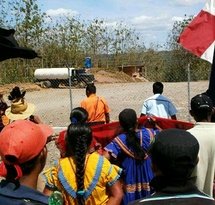
Yesterday Jasper van Dijk, MP of the Socialist Party (SP), submitted written parliamentary questions to Minister Lilianne Ploumen for Foreign Trade and Development Cooperation about the construction of the Barro Blanco dam in Panama. The construction of this controversial dam continues despite violent protests in Panama against human rights violations and environmental damage. What does the Netherlands have to do with it? At the end of 2012 the SP also asked parliamentary questions about this issue. Anouk Franck of Both ENDS explains why.
-
News / 18 February 2014
Situation tense for indigenous Ngäbe people near Barro Blanco in Panama
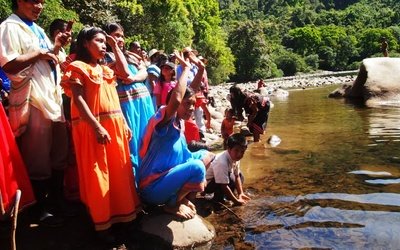
The construction of the Barro Blanco dam in Panama is entering the final stage. Project developer Genisa is planning to bring the dam into operation in May. The indigenous Ngäbe people that live in the area, a tribe of about two hundred thousand, are opposed to the construction of the dam. They have entrenched themselves in the areas where the building of the dam is being completed. All of them are afraid of the security forces, who acted with a lot of violence in the last confrontation.
-
News / 12 August 2013
Anouk Franck on visit UN Rapporteur James Anayo to Panama
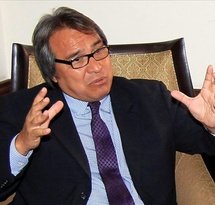
We were very pleased that James Anaya, UN Special Rapporteur on the Rights of Indigenous Peoples, visited Panama to speak with the indigenous Ngäbe Buglé community and to take a close look at the developments around the Barro Blanco dam.






















